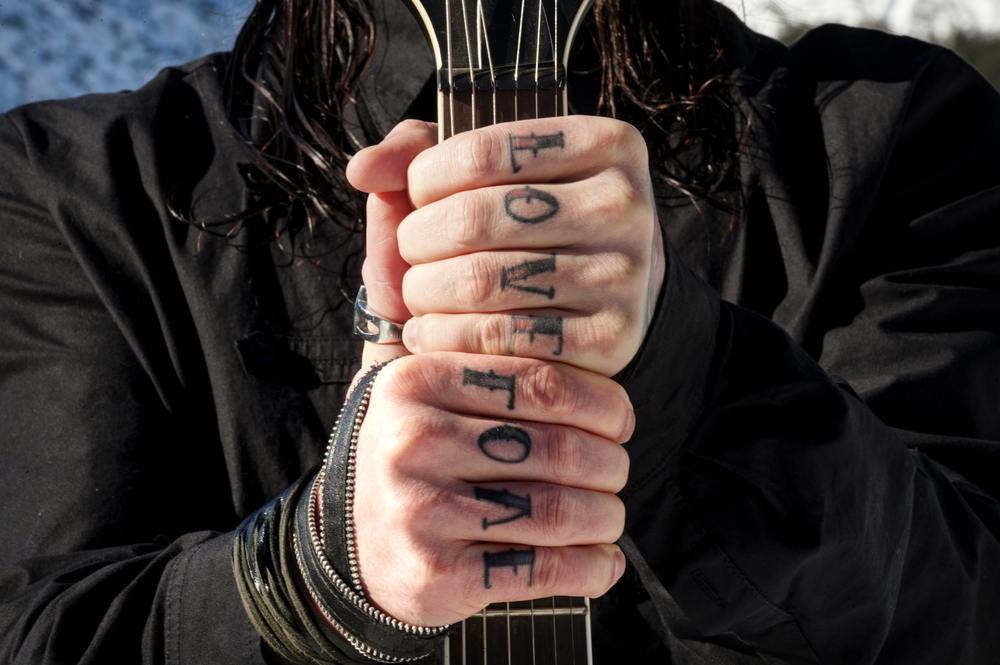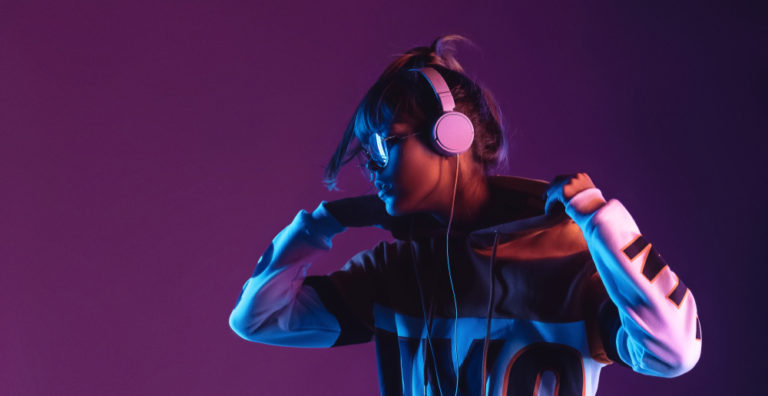This Is Why Rock Bands Wear Black (A Lot)
Fans of Rock music will have taken note that almost all rock bands tend to wear black. But how did wearing black and dark colors become so engrained into Rock culture? There is a long history behind the marriage between Rock and Black…
Rock bands tend to wear black because it is convenient for traveling on the road and helps groups appear uniform on stage to not distract crowds from what matters: the music. It is rooted in the history of performance in classical music and also reflects in various Rock subgenres.
We often take black for granted in Rock Music, and there’s nothing new about bands wearing black; it’s been the case for decades. But how did this trend come about? Why has it persisted? Let’s take a look at the history of black in Rock.
How Black Clothing Became Popular In Rock Culture
Rock bands have adopted black attire simply because of how the “rules” for artists have changed over the years, starting with Classical Music orchestras in the early 18th Century.
Black In Classical Music
Orchestras would play exclusively for the nobility as “servants” in the household and would therefore don black and white “uniforms.” Black and white were and still are considered smart.
But crucially, even for Classical Music orchestras today, when musicians wear black, they do not want the audience to pay attention to their attire; they should only be focused on the music. Classical musicians unanimously believe that absolutely nothing should distract audiences from the music. And, because orchestras need to operate as a collective unit, they should all be uniform and “equal.”
The only exception comes in soloists, who should wear other colors to distinguish themselves from the rest of the audience as the “special act” in the ensemble, a specific sound or voice that the audience should be paying extra attention to.
Rocker Subculture
Aside from Rock music’s continuation of the performative norms in Classical music, the central cultural movement that snowballed into the fashion that defines Rock today, the Rocker subculture, is another origin.
The biker subculture of Rockers (or leather boys/Ton-up boys/café racers/greasers) emerged in the United Kingdom in the 1950s when the middle-class could afford motorbikes, and it became a popular means of transport.
Rock ‘n Roll music had a massive influence on the subculture, but the “Rockers” name does not originate from Rock ‘n Roll. It’s a reference to the rockers found in 4-stroke engines. The Rocker fashion was born out of necessity more than anything, wearing heavy leather jackets decorated with studs, pin badges, patches, etc. They also wore jeans or leather pants and biker boots. This attire would, therefore, all be brought together in a uniformly black ensemble.
Bands like The Beatles, The Rolling Stones would later take the Rocker culture out of England with them as they “Invaded” America. And while this biker culture would not resemble what we may consider a rockstar’s outfit to look like today, because once it had hit the United States in the 60s, it would take on many different forms, much like Rock music itself, over time.
Punk
The Punk subculture was a rebuttal of the pretensions of mainstream music, so probably deviated the furthest from black with their vivid pink mohawks and green spikey hair. Offensive T-shirts also gained popularity in punk fashion, and many punk bands decided to stick with black T-shirts and jeans. But, if you look at famous bands from the 70s in particular, such as The Clash or The Ramones, black, boots, and leather remain despite the deviations.
Metal
Metal fashion is almost exclusively black. But Metal also embraced body modification and piercings in particular, along with Corpse paint – black and white makeup used to make performers look inhuman, corpse-like, or demonic – and extra-long hair. Some examples of Metal artists that had a major influence on Metal fashion include Judas Priest, Motorhead, Iron Maiden, and Metallica.
While Metal fashion has evolved, black, leather, and long hair have remained constant. Like Rockers, attire is often adorned with patches, studs, and pins.
Goth
Goth fashion is a more extreme version of metal fashion. The Gothic subculture, which was inspired by the likes of Marc Bolan, The Velvet Underground, The Doors, David Bowie, Brian Eno, and Iggy Pop. tends to be defined by dark and homogenous features.
It borrows from both Punk and metal but also mixes in old fashions, like Victorian-era dresses. It is also closely associated with Emo fashion and Emo music – another Rock music subgenre. However, goth bands are not afraid to mix in scarlet or violet or other astonishingly colored accessories and hairstyles.
The Goth subculture has subcultures, such as Deathrock, Haute Goth, Gothic Lolita, Aristocrat, Cybergoth, and Traditional Goth.
Some of the biggest Gothic Rock artists include Alice Cooper, Marilyn Manson, Nine Inch Nails, 45 Grave, Magazine, Siouxsie and the Banshees, and Joy Division.
Countless other Rock Music subcultures have adopted black and have evolved the “Traditional” Rock music attire in other directions. But there are some simpler explanations for why black has remained constant and a favorite among Rock bands.

Badboy Image
Just as was the case with Rockers, black has given rockstars a bad boy image. Rockers wore their dark attire to appear intimidating. They would strip their motorcycles and repurpose them for the same purpose. This compliments the rebellious nature of Rock music.
Performatively, this helps Rock bands craft their image and adopt dark, mysterious, and domineering stage presences.
Convenience
It is also possible that Rock bands tend to wear black because they’re on the road so often, and black clothes are easier to keep clean. And, for most stages, backstage crews require everyone to wear black. It is an industry standard.
Some venues will even add a clause to Rock bands’ contracts that stipulate that they can only wear black on stage.
Unified Ensemble
On stage, the most practical reason for Rock bands to dress in all-black is the same reason that Classical orchestras opt to do so. Unlike solo artists, who you’ll often see adorned in bright colors and elaborate outfits in their live shows to draw attention to themselves, Rock bands need to come across as a unit, with one piece of the band not stealing the limelight from the rest.
Rock music is a collaboration, and all members of the ban need to present themselves to audiences on a unified front. Black also allows the artists to fade into the background, putting their music at the forefront of attention.
So, Rock music is a diverse genre with several subcultures, but all Rock bands uniformly embrace black. Black is a uniform for Rock artists deeply embedded in their music’s culture and has been for more than half a century.
There are also many practical reasons for Rock bands to wear black (a lot) because it helps them draw attention away from themselves and to their music and black clothes are easy to travel with.
Black attire and Rock music are practically synonymous and cannot be separated, no matter how many times the music has been splintered and how many subcultures develop.
Sources:
Rocker (subculture) | Wikipedia
Why Do Musicians Always Wear Black? | Nicole Warner, mezzo-soprano
Why the heck do musicians always perform in black? | Classic FM








